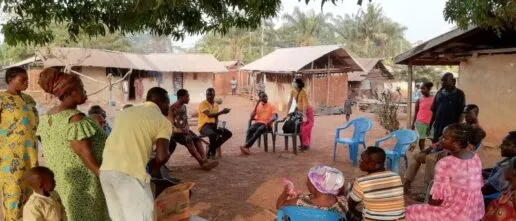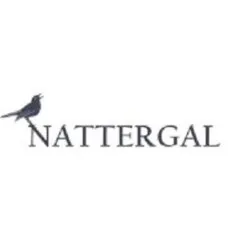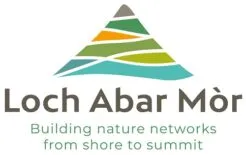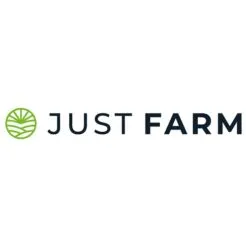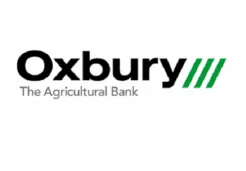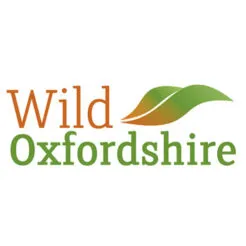Connie’s research, described in detail on the Land use Governance page, addresses the linkages among diverse local, regional and global priorities for sustainable forest management. It examines both “new” and “old” institutions of forest governance, from market-based initiatives such as forest and carbon certification to sovereign state-based and traditional community-based approaches, to better understand how dynamics of trust and power shape environmental and social policies and facilitate or inhibit desired outcomes. Her methods range from locally focused case studies to large-scale comparative research examining cross-institutional and cross-boundary interactions.
Related Research Themes
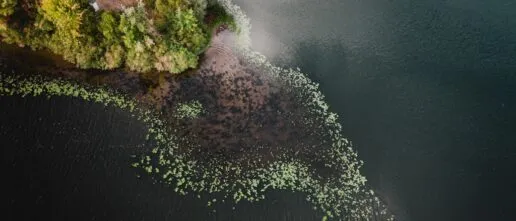
Ecology
Testing the effectiveness of different ecological approaches for nature recovery to support biodiversity and the delivery of ecosystem services such as climate change mitigation and adaptation.

Scale and Technology
Tracking and evaluating nature recovery at both fine resolution and large spatial scales utilising state-of-the-art remote sensing, big data, and deep machine learning techniques.

Human health and wellbeing
Exploring, understanding, and determining those aspects of nature which directly contribute to improvements in physical and mental health and wellbeing.

Society
Encompassing the governance and socio-cultural dimensions of nature recovery.

Policy engagement for nature recovery
We work with policy-makers to foster effective approaches to nature recovery, using the Centre's unique evidence-base and compelling stories about nature and its value to society.
Related Projects

Risky Nature Recovery
How can the governance of nature recovery embrace uncertainty to support transformative change?

The landscape aesthetics of nature recovery
How do perceptions of what the landscape ought to look like enable and constrain nature recovery in the UK?

Evenlode Landscape Recovery
Lead by the North East Cotswold Farming Cluster and funded by DEFRA as apart of the Environmental Land Management schemes, the project aims to expedite the transition to a financially and environmentally sustainable farming system through nature recovery efforts.

Understanding nature recovery paths and ecosystem functioning through forests health assessments
Quantifying the health of forests ecosystems by means of earth observation can aid in understanding nature recovery paths and ecosystem functioning
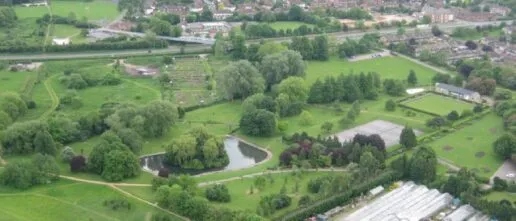
Equitable distribution of nature-rich accessible green space: An Oxfordshire case study
Investigating the distribution of freely accessible green space in Oxfordshire in relation to socio-economic status to inform local green space planning.

Social ecological mapping for nature recovery
Developing social ecological maps for land use planning, investment and inclusive decision-making.
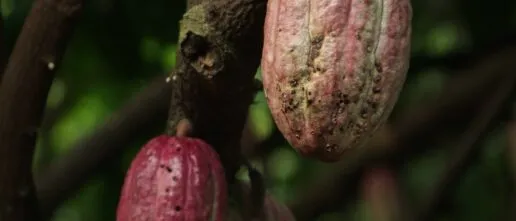
Institutional innovations for nature recovery
A power-sensitive and multi-level analysis of institutions involved in pursuing landscape scale nature recovery and their intersection with questions of equity and justice in the UK and Ghana.

Governing sustainable finance for effective and equitable nature recovery
Developing a typology of financing models for nature recovery and assessing how different modalities of finance shape dynamics of equity, collaboration and conflict in nature recovery.

Innovative methods to connect and communicate between disciplines
Establishing evidence-based methods to bridge scientific fields for nature recovery.

Database of Scottish nature recovery projects
We will build a database of all nature recovery projects and organisations in Scotland.
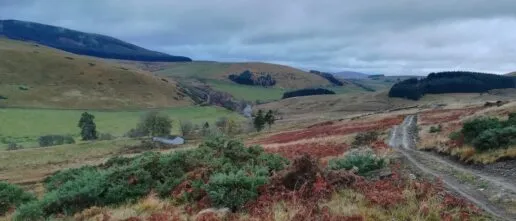
Bunloit and Beldorney
Exploring the ecological and social dimensions of nature recovery.
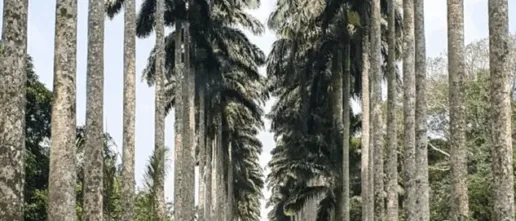
Urban green space, values and wellbeing in urban Ghana
Exploring how urban green space is (dis)valued in Accra and Kumasi, and the potential (dis)benefits to subjective wellbeing
Related Outputs
Equity in unilateral value chain policies: A monitoring framework for the EUDR and beyond
Unilateral value chain policies have recently emerged as a key strategy of international land use governance. They’re part of a broader trend towards trade-based environmental policies, from corporate due diligence to sustainability certification and trade moratoria, that has been critiqued for reinforcing inequities in global trade. Such critique has been heightened by the current rise […]
Unpacking the politics of Nature-based Solutions governance: Making space for transformative change
Pre-print paper on the politics of Nature-based Solutions governance for transformative change. This paper finds that dominant framings can end up undermining, rather than supporting, the changes that are needed for transformation to happen. Techno-centric and market-oriented approaches, perceptions of risk and uncertainty, and “democracy washing” risk perpetuating power imbalances and superficial participation. Making space […]
Nature-based Solutions Knowledge Hub
The Nature-based Solutions Knowledge Hub is an integrated one-stop resource to guide users through the process of governance, designing and funding Nature-based Solutions (NbS), and monitoring the outcomes. The Hub is aimed at those involved with NbS in the UK, though much of the guidance would also be applicable in other locations. Visit the Knowledge […]
Oxfordshire’s greenspace-deprived neighbourhoods
A new report which has just been launched explores Natural England’s Green Infrastructure data to identify neighbourhoods in Oxfordshire experiencing both socio-economic deprivation and poor provision of accessible greenspace, with a view to these neighbourhoods being prioritised in terms of planning, allocation of funding, and effort for improving quality and quantity of accessible greenspace.
Just nature recovery: A framework for centring multispecies and multi-dimensional justice in land management
Highlights Justice considerations can be overlooked in the planning and delivery of nature recovery projects. Multispecies justice and multi-dimensional justice offer alternative framings of justice and how it can be achieved. Integrating MSJ and MDJ approaches can inform nuanced analyses of nature recovery projects. We consider the different justice concerns in a range of examples […]
World Series Vol. 43 – International Forests Governance: A critical review of trends, drawbacks, and new approaches – chapter
International Union of Forest Research Organizations has published a new report under its Science-Policy Programme: “International Forests Governance: A critical review of trends, drawbacks, and new approaches” The scope of this new assessment includes an update on governance changes since 2010, including actors and instruments; an overview of the forest-related finance landscape; an identification and […]
Interdisciplinary Catalyst Activities – Field Work Tennis
In pairs, participants engage in back-and-forth conversations that are constructed to either accept or reject suggestions from the offering partner, with role-playing around an environmental research/restoration theme. This layered activity helps think through interdisciplinary critique as productive—rather than a hinderance—in research design and execution. More information on the wokshop this activity was developed for here […]
Interdisciplinary Catalyst Activities – Object of Significance
Three groups engage in role-play, each group independently develops their own ‘rituals’ around a provided object, and these are then shared. The activity helps think about research and decision making when meanings placed on objects and ideas in the environment are different or in conflict between groups of people. More information on the wokshop this […]
Social Dimensions of Nature Recovery Across Oxfordshire
Report arising from a workshop highlighting the importance of understanding how land use governance, different systems of knowledge and values, and differences in people’s financial means and access to natural areas shape socio-ecological systems.
Climate change alters impacts of extreme climate events on a tropical perennial tree crop
We report that in recent decades, El Niño years experience reductions in cocoa production followed by several years of increased production, and that this pattern has significantly shifted compared with prior to the 1980s.
Related Landscapes

Ghana
Initiatives, including the Ghana Cocoa Forest REDD+ Programme and Cocoa and Forests Initiative, need to be centred around local communities to ensure they succeed and deliver equitable outcomes.
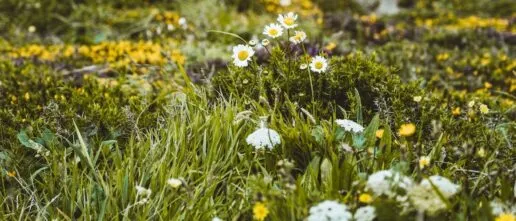
Oxfordshire
With its active network of nature recovery groups, Oxfordshire presents a unique opportunity to test and showcase a portfolio of different ecosystem restoration strategies, to become a model county for nature recovery. Our work in this landscape aims to build a community of practice between the University and local practitioners, and will also form a […]
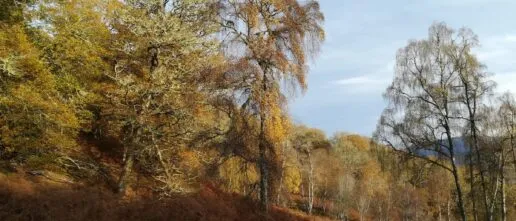
Scottish Highlands
Scotland is renowned for its distinctive and diverse range of landscapes, which are a significant part of the country’s natural and cultural heritage. The environment has been shaped by interconnected human and natural processes over thousands of years and includes built heritage, ancient woodlands, wildlife and native species, art and literature, folklore, language and traditions […]

